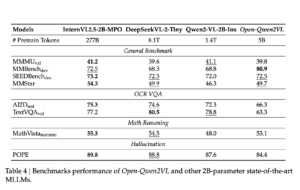Hugging Face Speech-to-Speech Library: A Modular and Efficient Solution for Real-Time Voice Processing

With speech-to-speech technology, the focus has shifted toward more prominent facilitation of spoken language toward other spoken outputs, enabling better communication and access within diverse applications. This ranges from voice recognition to language processing and speech synthesis. These elements, combined with the speech-to-speech systems, would work toward making such an experience seamless, one that works well in real-time and furthers how people interact with digital devices and services.
The prime challenge is to have high-quality, low-latency speech processing and privacy for the user. Tradition has it that different systems were used for voice activity detection, speech-to-text conversion, language modeling, and text-to-speech synthesis. These may be effective in their particular areas of work, but including all these in one system causes much inconvenience; it increases latency and creates potential issues relating to privacy. An efficient approach that fuses efficiency with modularity has to be found.
State-of-the-art tools solve only parts of the speech-to-speech pipeline and are often implemented without seamless integration. For instance, Voice Activity Detection (VAD) systems like Silero VAD v5 detect and segment speech from continuous audio streams. Speech-to-Text (STT) models, such as Whisper, perform the text transcription, while Text-to-Speech (TTS) models synthesize audible speech from text. Language models understand and formulate a response to the query in text. These models were typically developed piece by piece and then integrated into a single, effective system, which often required significant manual configuration and resulted in inconsistent performance across platforms.
Hugging Face has just introduced a Speech-to-Speech library designed to try to overcome the integrative hardships of such models. The research team has created a modular pipeline that is based on the four following building blocks: Silero VAD for voice activity detection, Whisper for speech-to-text conversion, a flexible language model from the Hugging Face Hub, and Parler-TTS for text-to-speech synthesis. In addition to this, the library should be cross-platform, with support for both CUDA and Apple Silicon, allowing the project to be run on most hardware configurations. With these key components integrated, this speech processing pipeline should be streamlined into one where the overall performance is maintained across systems.
Hugging Face first used models that already worked and then fit those into a more modular framework. This library uses Silero VAD v5 for voice activity detection and segments the speech accurately. The Whisper models then take it to text, although the library does support the use of several checkpoints, including distilled versions, for efficiency. The language model can be any instruct model available on the Hugging Face Hub; thus, it may have flexible interpretations of text. Finally, Parler-TTS generates high-quality speech from text inputs. It is designed in a library manner where users can easily switch out components and adapt the system to best meet their needs, helping in improving performance and adaptability.
The Speech-to-Speech Library at Hugging Face represents a manifold increase in processing speed and efficiency in performance evaluations. This lowers the latency to as low as 500 milliseconds, which is an achievement in real-time speech processing. The modular approach ensures that each component can be optimized independently for performance, hence contributing to the overall efficiency of the pipeline. Support from the library for both CUDA and Apple Silicon platforms carries the guarantee of compatibility on a wide array of devices and further increases its applicability in various environments.
This library for Speech-to-Speech is a revolution in voice processing and putting those processes into one efficient system. By merging different state-of-the-art models into one modular framework, the research developed a solution that would help overcome latency and privacy challenges with flexibility and high performance. The new library sets the mark not only for improving the efficiency of speech-to-speech systems but also for being modular, cross-platform, and in speech processing solutions.
Check out the Repository. All credit for this research goes to the researchers of this project. Also, don’t forget to follow us on Twitter and join our Telegram Channel and LinkedIn Group. If you like our work, you will love our newsletter..
Don’t Forget to join our 50k+ ML SubReddit
Here is a highly recommended webinar from our sponsor: ‘Unlock the power of your Snowflake data with LLMs’
Nikhil is an intern consultant at Marktechpost. He is pursuing an integrated dual degree in Materials at the Indian Institute of Technology, Kharagpur. Nikhil is an AI/ML enthusiast who is always researching applications in fields like biomaterials and biomedical science. With a strong background in Material Science, he is exploring new advancements and creating opportunities to contribute.












